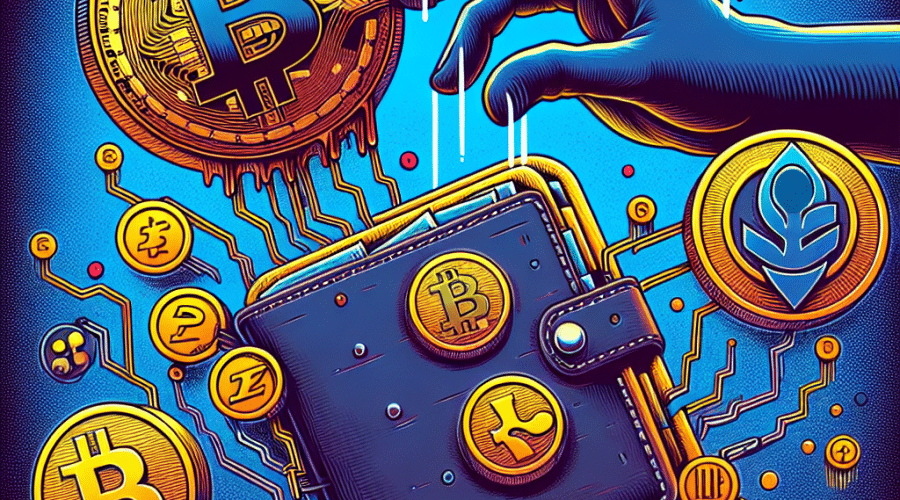Bhutan Deepens Crypto Strategy: Stakes 320 Ethereum and Expands Blockchain Initiatives
Introduction: Bhutan’s Renewed Foray into Ethereum
In a significant move reflecting its evolving approach to digital assets, the Royal Government of Bhutan has staked 320 Ethereum (ETH) tokens via the institutional provider Figment.io. This transaction, valued at nearly $970,820, marks Bhutan’s most substantial Ethereum activity since May 2025 and signals a renewed commitment to blockchain-based infrastructure and asset diversification.
This development comes at a critical time when global governments are increasingly evaluating the potential of blockchain technologies. Bhutan’s decision highlights not only a continued belief in the long-term promise of Ethereum but also the country’s broader digital transformation strategy. This article delves into the details of the stake, the reasoning behind Bhutan’s crypto reserves composition, the country’s approach to blockchain integration, and the strategic importance of these actions for the Himalayan nation.
Bhutan’s 320 Ethereum Stake: Details and Context
On November 27, 2025, at precisely 10:30:35 UTC, Bhutan re-energized its involvement with the Ethereum network by staking 320 Ethereum tokens through Figment.io, an institutional-grade blockchain infrastructure provider. This transaction originated from wallet addresses affiliated with Druk Holding and Investments—the sovereign investment arm of Bhutan.
Since Ethereum’s shift to a proof-of-stake consensus mechanism, a minimum of 32 ETH is required to activate each network validator. By staking 320 ETH, Bhutan has effectively added 10 new validators to the Ethereum network, extending its influence and security participation in one of the most significant blockchains worldwide.
Importantly, this is Bhutan’s first high-profile Ethereum transaction since May 2025, when the nation executed a transfer of 570 ETH to the major exchange Binance. After months of relative silence in on-chain activity, the new stake appears to confirm Bhutan’s long-term view and conviction in blockchain investments.
Analysis of Bhutan’s Crypto Reserve Strategy
Bitcoin remains the primary digital asset reserve for Bhutan. According to blockchain intelligence platforms, Bhutan currently holds an estimated 6,154 BTC—amounting to a value of $560.26 million at current market rates. This dwarfs the country’s Ethereum holdings, which, as of the most recent update, stand at 336 ETH valued at approximately $1.01 million.
The government’s methodology in choosing which assets to hold is strategic. Bitcoin, Ethereum, and Binance Coin have been designated reserve assets for Gelephu Mindfulness City, Bhutan’s emerging economic and digital hub. The reasoning behind this selection, according to government officials, is rooted in the liquidity and market capitalization of these tokens. Each has established deep markets and resilient trading volumes—characteristics that make them ideal for supporting regional economic activity and providing a robust foundation for Bhutan’s digital financial ecosystem.
While Ethereum and other assets contribute to the overall diversification of Bhutan’s sovereign digital reserves, the nation’s persistent preference for Bitcoin signals confidence in Bitcoin’s status as a digital store of value. Ethereum, however, stands out for its technical potential and capacity to support diverse blockchain services beyond pure transacting or storage.
The Significance of Staking Through Figment.io
Partnering with Figment.io demonstrates the government’s desire to engage with industry-leading blockchain service providers, ensuring that Bhutan’s staked assets are managed securely and optimally. Figment.io specializes in blockchain infrastructure and staking solutions for institutional clients, offering secure, reliable, and compliant services.
By using Figment.io, Bhutan gains several advantages:
- Enhanced Security: Institutional custody and staking services reduce the risk of error or asset loss.
- Optimized Staking Rewards: Reliable infrastructure ensures that all possible rewards from staking are maximized.
- Operational Transparency: The partnership brings industry oversight, auditability, and reporting capabilities.
The activation of 10 new validators not only increases Bhutan’s potential yield from staking rewards but also enhances the security and decentralization of the Ethereum network. This engagement is emblematic of emerging nation-states leveraging advanced digital infrastructure to secure economic interests and participate in the governance of public blockchain systems.
The Growing Role of Ethereum in Bhutan’s Digital Strategy
Bhutan’s relationship with Ethereum is not limited to treasury management. The government has recently initiated the migration of the National Digital Identity (NDI) system from the Polygon blockchain to Ethereum. This strategic transition, which began in October and is expected to conclude in early 2026, reflects Bhutan’s confidence in Ethereum’s larger validator network, accumulated security, and robust infrastructure.
By leveraging Ethereum’s secure, open-source environment, Bhutan aims to enhance the transparency, control, and reliability of its public services. The migration of the NDI to Ethereum demonstrates the government’s recognition of blockchain as more than a speculation vehicle—it is a platform for innovative, secure, and citizen-focused governance. Once completed, the new NDI system will allow Bhutanese citizens to manage and verify their identities using world-class cryptographic infrastructure.
The move is illustrative of a broader trend amongst forward-thinking governments adopting blockchain for digital identity—a sector poised for exponential growth in the coming years. Bhutan’s shift from Polygon to Ethereum was based on careful evaluation of security features, user control, and systemic resilience.
Integration of Crypto Assets into the National Economy
The Bhutanese government’s crypto strategy revolves around more than just asset accumulation. Authorities have explicitly connected their crypto reserves to major developmental initiatives such as Gelephu Mindfulness City. Here, Bitcoin, Ethereum, and Binance Coin serve as reserve assets to buttress the regional economy and foster financial innovation.
By maintaining reserves in these top-capitalization tokens, Bhutan positions itself to take advantage of global digital liquidity, thus supporting domestic infrastructure, development projects, and cross-border economic activity. As the regional and global digital economies expand, this forward-thinking approach may provide Bhutan with valuable leverage in trade, finance, and technology.
Furthermore, staking activities such as the recent ETH lock-up allow Bhutan to earn passive income through network participation, steering fiscal benefits back into government coffers while reinforcing the backbone of the digital assets it holds.
Implications for Bhutan’s Digital Governance
By integrating blockchain technology into public systems and leveraging digital currencies as reserves, Bhutan is crafting an ambitious digital governance roadmap. Staking Ethereum marks a substantial investment—not just financially, but institutionally—into a future where critical state infrastructure is secured by cryptographic verifiability.
Bhutan’s deliberate strategy signals several key implications:
- Increased Transparency: Blockchain-enabled services foster public trust due to their open, auditable nature.
- Economic Resilience: A diversified digital reserve base can help insulate Bhutan’s economy from global commodity and currency volatility.
- Innovation Leadership: Early adoption of smart contracts and decentralized systems positions Bhutan as a potential leader in governmental digital transformation.
- Enhanced Public Security: Blockchain-based identity and transaction systems can reduce fraud and inefficiency in public services.
These benefits are not just hypothetical. Each step—staking, reserve allocation, and digital identity migration—represents a concrete action toward an economy that is more autonomous, technologically advanced, and globally integrated.
Challenges and Future Prospects
Bhutan’s expanding crypto and blockchain strategy is not without challenges. The volatility of digital asset markets means that the value of Bhutan’s reserves can fluctuate significantly in short periods. Additionally, increased stakes in public blockchains bring new regulatory, technical, and security considerations. There is also the need for government capacity building and public education to ensure widespread understanding and successful adoption of digital services.
However, Bhutan appears committed to managing these risks proactively. The country’s phased asset movement, reliance on institutional-grade service providers, and systematic approach to digital transformation indicate a prudent balance between innovation and caution.
Looking forward, Bhutan’s continued exploration of blockchain solutions in governance, finance, and identity creates a template that other small nations might emulate. As the NDI migration to Ethereum progresses, and as staking activities deepen, Bhutan’s digital economy could become a model for secure, effective crypto-national governance.
Conclusion: Bhutan’s Place in the Global Digital Revolution
The Royal Government of Bhutan’s decision to stake 320 Ethereum tokens, migrate national digital infrastructure to public blockchains, and integrate digital assets into comprehensive economic planning, signifies a pivotal era in the nation’s evolution. Bhutan is not simply riding the wave of digital transformation; it is shaping it. By aligning its statecraft with some of the world’s most advanced technologies, Bhutan demonstrates how small states can leverage blockchain for prosperity, inclusivity, and resilience in a rapidly changing global landscape.
As Bhutan continues to balance risk, security, and opportunity in its crypto strategy, eyes across the digital asset world will be watching. The implications of these moves will reach beyond the borders of this Himalayan nation, ensuring its place at the forefront of the blockchain-powered future.

















